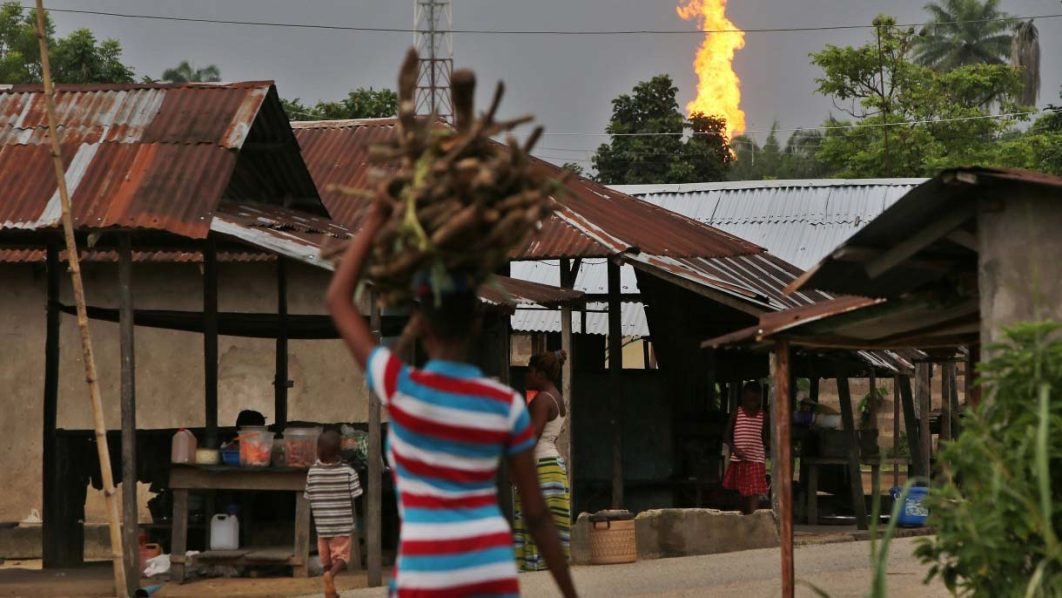
Globanisation often manifests in the movement of goods and services. The driving geopolitical forces are sometimes hidden because the faces that are visible are the international financial institutions such as the World Bank and the International Monetary Funds. This is why the Structural Adjustment Programmes (SAPs) of the 1980s and the so-called Poverty Reduction Strategy Papers (PRSPs) are seen as the sins of the IMF and the WB whereas there are political superstructures behind these entities.
The SAPs threw our country and other African nations into the debt trap. Futile attempts to escape the traps are premised on efforts to make these payments from exploitation of natural resources for exports.
Because the prices of those commodities are set remotely, they are sometimes so low that raising reasonable revenue necessitates deeper and more drastic exploitation of natural resources. In such desperate situations environmental concerns are the least worries of neoliberal and predatory governments.
There is a direct link between environmental protection and politics. The more inclusive of the people a system is, the more environment friendly the government would be.
According to the first African to win the Nobel Peace Prize for environmental activism, the late Wangari Maathai, “What we’ve learned in Kenya—the symbiotic relationship between the sustainable management of natural resources and democratic governance—is also relevant globally. Indeed, many local and international wars, like those in West and Central Africa and the Middle East, continue to be fought over resources. In the process, human rights, democracy, and democratic spaces are denied…”
Regarding the Nigerian context, besides other causes, the major reason why massive pollutions are tolerated by government has been because the polluters generate the bulk of the revenue government needs for its activities.
We have viciously polluting international oil companies in mind here. In some other areas these manifest as land grabs, displacing local communities from their lands and forests to make way for that thing that poor governments are so addicted to foreign direct investment.
Whenever there appears to be a call for responsible behaviour all the companies do is to threaten to pull out of the oil fields to blackmail governments to withdraw and be content with the oil rents they receive. A recent fad has been the divestment talks, a process which allows transnational oil companies to sell off their assets to Nigerian companies, and aim to by this move avoid responsibilities over the harms suffered by the communities.
The divestment moves has been shrouded in such secrecy and it appears even agencies of government are either not respected with regard to the process or are simply ignored. In all cases communities are utterly ignored.
Environmental Laws
It is interesting that the same transnational polluters are closely advising the government on issues that have implications for environmental quality in Nigeria. For example, they sit on the board of the National Environmental Standards and Regulations Enforcement Agency (NESREA) while they are exempted by law from being regulated themselves.
Recall that the coming into existence of NESREA effectively repealed the Federal Environmental Protection Agency (FEPA) Decree 58 of 1988 later amended in Decree 59 of 1992. A quick glance at some of the existing environmental laws and regulations include the following:
Environmental Impact Assessment Act 2004;
The Land Use Act 1979; Harmful Waste (Special Criminal Provisions) Act 2004; Hydrocarbon Oil Refineries Act 2004; Associated Gas re-injection Act 2004; The Endangered Species Act 2004; Sea Fisheries Act 2004; Exclusive Economic Zone Act 2004; Oil Pipelines Act 2004,
Petroleum Products and Distribution (Management Board) Act 2004.
Others are: Territorial Waters Act 2004; Nuclear Safety and Radiation Protection Act 2004; Nigerian Mining Corporation Act 2004; Quarantine Act 2004; River Basins Development Authority Act 2004; Pest Control of Production (special powers) Act 2004; Agricultural (Control of Importation) Act 2004; Animal Diseases (control) Act2004; Bees (Impact Control and Management) Act 2004, Civil Aviation Act 2004. Factories Act 2004, Water Resources Act 2004; Hides and Skins Act 2004; Federal National Parks Act 2004; Niger-Delta Development Commission (NDDC) Act; Solid Minerals Act. 2007, NOSDRA Act 2005 and Petroleum Industry Act (2022).
Ecological crimes and remediation
It can be said that our more recent environmental laws have been largely reactive. And some actions are taken without enabling laws to ensure suitability and evaluation. Here we have in mind the creation of the Hydrocarbons Pollution Restoration Project (HYPREP), one year after the damning report of the assessment of the Ogoni environment by the United Nations Environmental Programme (UNEP).
The anachronistic name of “Pollution Restoration’ was changed to “Pollution Remediation” when a revamped and gazetted HYPREP was inaugurated in 2016, five years after the UNEP report.
The current project coordinator is the 5th to hold that office and it does appear that things are picking up regarding the provision of emergency services (especially potable water) in Ogoniland. HYPREP has had a rapid succession of leadership thus complicating the prospect of achieving the objective of the agency in a timeous manner.
The UNEP report had highlighted that Ogoniland is highly polluted and that oil spills were never adequately cleaned up. With spills accumulated over the years, water bodies have been contaminated, including ground water having benzene, a carcinogen, up to 900 times above World Health Organisation standards.
The report also indicated that hydrocarbon pollution had penetrated the ground to a depth of 5 metres at many places. The enormity of the contamination led to the set-up of HYPREP.
Another key event in official response to ecocide in Nigeria is the release of a report by the Bayelsa State Oil and Environment Commission in May 2023(9).Whereas the Ogoni assessment report was paid for by the team of polluters (NNPC, Shell, Agip/Eni, etc), the Bayelsa report was commissioned by the Bayelsa State government and produced by the commission.
To be continued tomorrow
Bassey, Director, Health of Mother Earth Foundation (HOMEF) at the 68th Conference/Congress of the Historical Society of Nigeria held in Lagos, recently.






